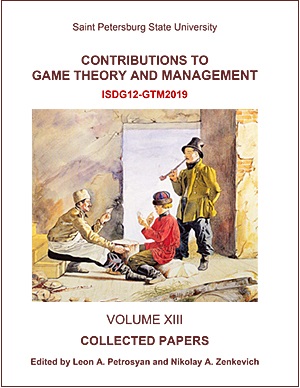Coordinating Contracts as an Instrument of Supply Chain Profit Maximization under Short-Term Financing Necessity
DOI:
https://doi.org/10.21638/11701/spbu31.2020.04Abstract
In this paper the problem of the supply chain expected profit maximization under the assumption of the short-term financing necessity for one of the supply chain parties using a coordinating contract is considered. The solution is derived for a two-echelon supply chain under the assumption of product demand being distributed as uniformly. A revenue-sharing contract with bank financing and a modified revenue-sharing contract with trade credit financing are explored. It is stated that none of the studied contracts is coordinating, as they do not provide the supplier’s expected profit maximum. The conditional coordination of supply chain with a modified revenue-sharing contract with trade credit financing is considered if the supply chain and the retailer’s expected profit maximum are reached and the supplier’s expected profit is greater than in case of application of a modified wholesale price contract with trade credit financing and a revenue-sharing contract with bank financing. It is proved that it is beneficial for both supply chain parties and the problem of the supply chain expected profit maximization under the assumption of the short-term financing necessity for one of the supply chain parties can be solved using a modified revenue-sharing contract with trade credit financing.
Keywords:
Supply chain, coordination, coordinating contract, profit, short-term financing
Downloads
References
Downloads
Published
How to Cite
Issue
Section
License
Articles of "Contributions to Game Theory and Management" are open access distributed under the terms of the License Agreement with Saint Petersburg State University, which permits to the authors unrestricted distribution and self-archiving free of charge.




